In this special report, James Langley looks in more depth at some of the proposals for the ‘core set’ of dry recyclable waste streams requiring collection from the kerbside and free garden waste collections.
Defra has now launched its much anticipated and much delayed second consultation on proposals to enact greater consistency in the materials collected for recycling in England.
The consultation on consistency in recycling collections is one of three which will shake up the UK’s recycling system. Consultation documents relating to a deposit return scheme (DRS) and extended producer responsibility (EPR) were published on 24 March (see letsrecycle.com story).
This second consultation on consistency looks to build on and add details to the proposal put forward in the first consultation, which took place in 2019.
Following the outcome of the consultation, the secretary of state for Defra George Eustice will specify the types of materials to be collected within each recyclable waste stream in regulations. These recyclable waste streams must be collected separately from other household waste, and they must be collected for recycling or composting.
The consistency measures will ensure that every home in England will be able to place plastic, paper and card, glass, and metal in their recycling bins. The waste streams must be collected separately from each other, except where this is not ‘technically or economically practicable’ or where there is ‘no significant environmental benefit’ from separate collection. This is to achieve ‘high-quality recycling’, Defra says.
‘Core set’
One area of contention has been the minimum or ‘core set’ of dry recyclable waste streams requiring collection from the kerbside. Metal, plastic, glass, paper and card are currently collected by 76% of local authorities in England. Most respondents to the last consultation in 2019 agreed that glass bottles and containers, paper and card, metal packaging, plastic bottles, and plastic pots, tubs and trays should be included in the core set. Alongside these materials, Defra’s 2019 consultation proposed including foil, foil trays and metal aerosols cans, food and drink cartons, and plastic film and flexible packaging.
Following further engagement with the industry Defra has proposed that the additional materials are included in the dry recyclable waste streams. It says that, ideally, it would want these materials collected from October 2023, to align with the date it has proposed for the introduction of EPR, except for ever-problematic plastic films.
However, it says it recognises that it may not be practicable for all local authorities and other waste collectors to collect these materials from the outset, or for sorting and treatment facilities to have made necessary changes to accept these materials by then. It is therefore seeking views on any necessary ‘transitional arrangements’.
Plastic film
Few local authorities in England currently offer plastic film collection. It is estimated that the current recycling rate for plastic films and flexible packaging is just 5%.
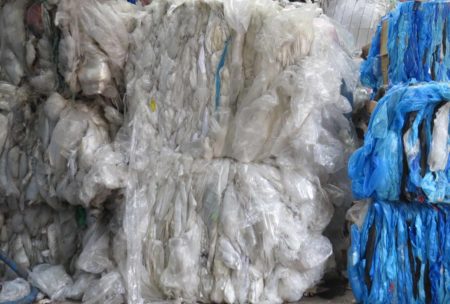
In 2019, most stakeholders supported the inclusion of plastic film either from the outset or being phased in at a later stage. Organisations that identified as waste management companies or local authorities were notably less in favour. Forty-two per cent of local authorities said plastic film should be included in the core set but phased in later.
While it was recommended to Defra that the collection of plastic films from households and businesses should be achieved by no later than 2028, it now says it believes it can happen earlier. It is proposed that plastic films should be phased in for collection from households in England by the date that EPR commences, with a defined ‘end date’ of the 2026/27 financial year.
The government is said to have been told by the industry in no uncertain terms that early signalling of the intent to require the collection of plastic film and flexible packaging for recycling is necessary to stimulate the investment needed in UK recycling infrastructure. Defra says such investment will not happen without some certainty that the feedstock will be available. During the transition period, retailer-led front of store collections of plastic films will help support recycling, Defra says.
Defra is seeking views on any specific circumstances that might make this timescale difficult to achieve.
Garden waste
Another proposal contained within the consultation is that every household in England should get free separate garden waste collections. Currently, 98% of local authorities in England provide a garden waste collection service. Resources charity WRAP estimates that introducing a free garden waste service would increase England’s household recycling rate by approximately 5%, compared to if all local authorities were to charge for garden waste collection.
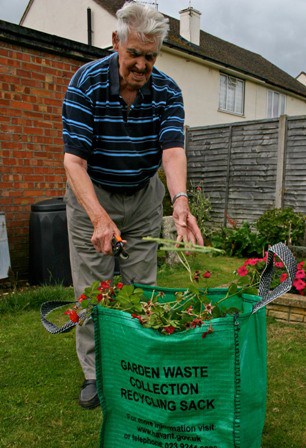
As per the 2019 consultation, Defra proposes that all local authorities will have to arrange for the collection of garden waste for recycling by the 2023/24 financial year. Its preference is for garden waste to be collected separately, though again it says it can be collected with food waste where separate collection of food waste is ‘not technically or economically practicable’ or there is ‘no significant environmental benefit’ from separate collections.
Defra says there is support for a minimum fortnightly collection service of a maximum capacity of 240-litres, either in bins or sacks. Local authorities would be able to charge for more frequent collections or additional capacity.
Defra says the government would cover the costs of a free minimum service. An impact assessment estimates that a free garden waste collection service would increase local authority waste management costs by £2,222 million between 2023 and 2035 when compared to a scenario where all local authorities charge for garden waste collections. This is mainly down to lost revenue from current charge levels.
However, Defra also says a free garden waste collection delivers additional carbon savings of £732 million across the same period, alongside an additional ‘societal value’ of £691 million when compared to a charged version of the same service provision. And, as noted above, the costs of providing a free garden waste collection service would be covered through new burdens funding.
Alternatives
Defra is also consulting on alternatives, given a mixed response from the industry to the proposal in 2019. Eighty per cent of householder respondents supported the introduction of free garden waste collections, but 71% of local authorities were not in favour.
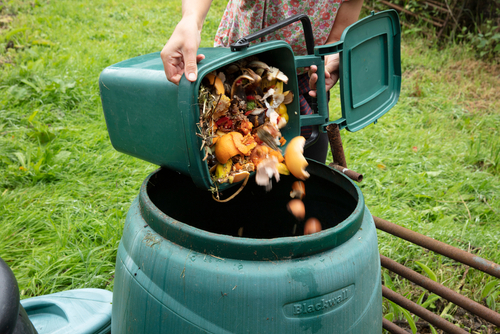
Defra says it could instead produce updated guidance on ‘reasonable charges’ for garden waste collection and the associated administration. WRAP analysis suggests this could be £18 to £30 per household per year, depending on the region. Defra says however that this would not deliver the same level of carbon and societal savings as a free minimum collection service.
Other proposed alternatives include targeting non-participating households placing garden waste in the residual waste bin with communications on the benefits and positive environmental impacts of recycling garden waste. Defra also suggests encouraging home composting, though a WRAP survey from 2007 suggested 37.4% of non-composters felt that nothing would encourage them to start composting. It is very possible the home composting landscape has changed significantly since then.
Business waste
Defra has proposed that the dry recyclable waste streams collected from non-household municipal premises should include the same materials as those in the equivalent recyclable waste streams from households, from the financial year 2023/24.
The department said this would ensure consistency between what people are able to recycle at home, at school and at work.
For food waste, Defra said this should always be collected separately from the other recyclable waste streams and residual waste. However, it would “welcome views on whether more time should be allowed for film or food waste to be collected for recycling from the non-household municipal sector beyond 2024/25”.
Useful links
Consultation on consistency in household and business recycling in England
SECURE YOUR PLACE
The Resources & Waste Strategy Revisited Conference is taking place online on 12 May 2021. This full day conference will explore responses to the consultations and aims to bring the industry together for networking and discussions on all three documents. Visit HERE for details.





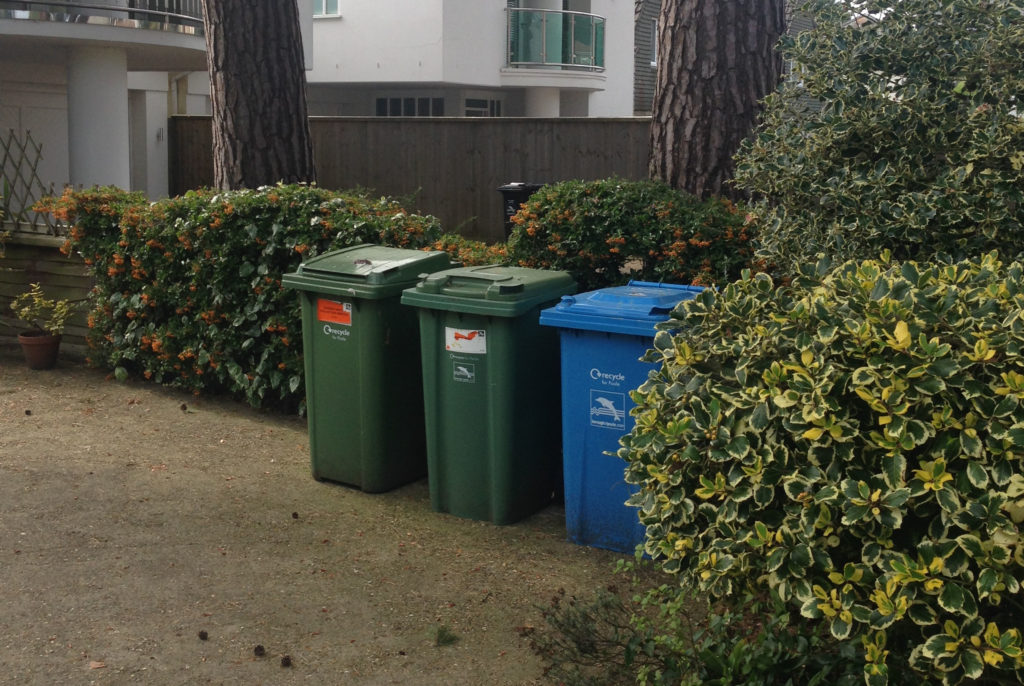

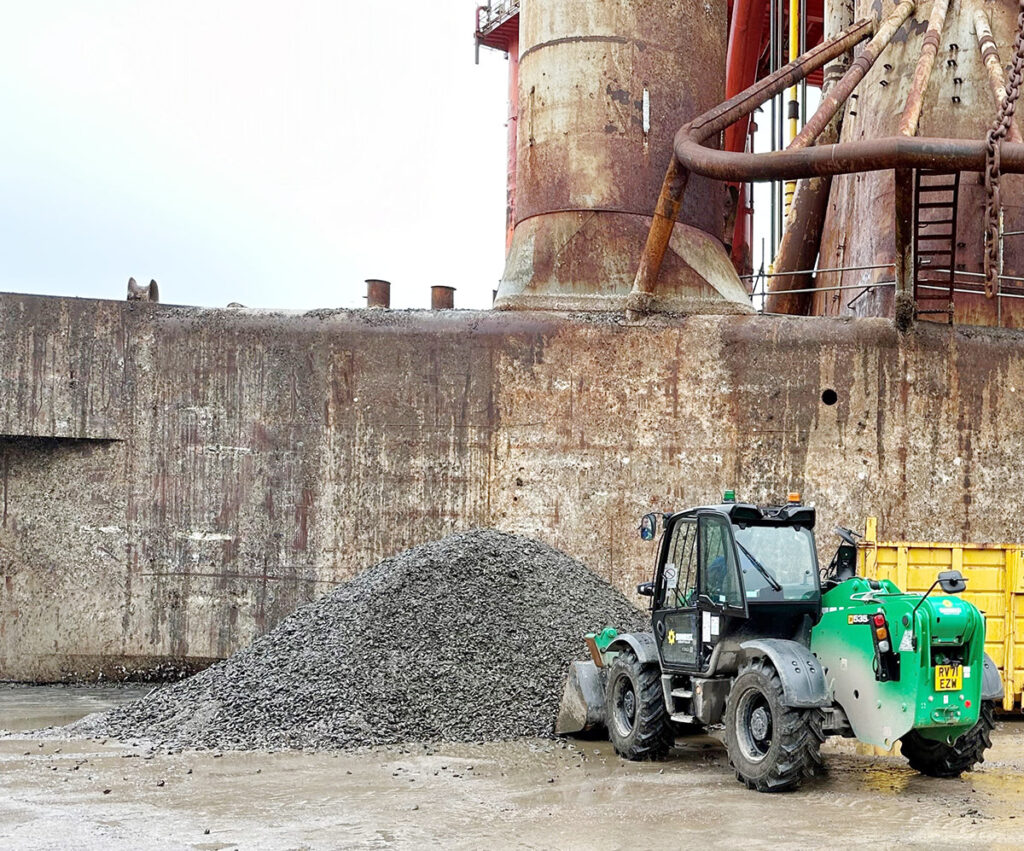




Subscribe for free